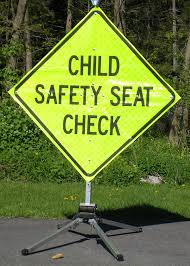
Over the past year, the MCIEAST-MCB Camp Lejeune Safety Department, in conjunction with The Safe Kids, Naval Hospital, Provost Marshall Office, Camp Lejeune Fire Department, Jacksonville, Police Department, North Carolina Highway Patrol, and the Onslow County Sheriffs Office, have inspected many car seats of various types.
The Car Seat Inspectors (CSI) have discovered that most car seats were found to be unserviceable or improperly installed. The Safety Department, along with our Law Enforcement partners, encourages all parents to take the extra step and have your child car seat inspected.
To learn more about child passenger safety, please visit
www.safercar.gov/therightseat.